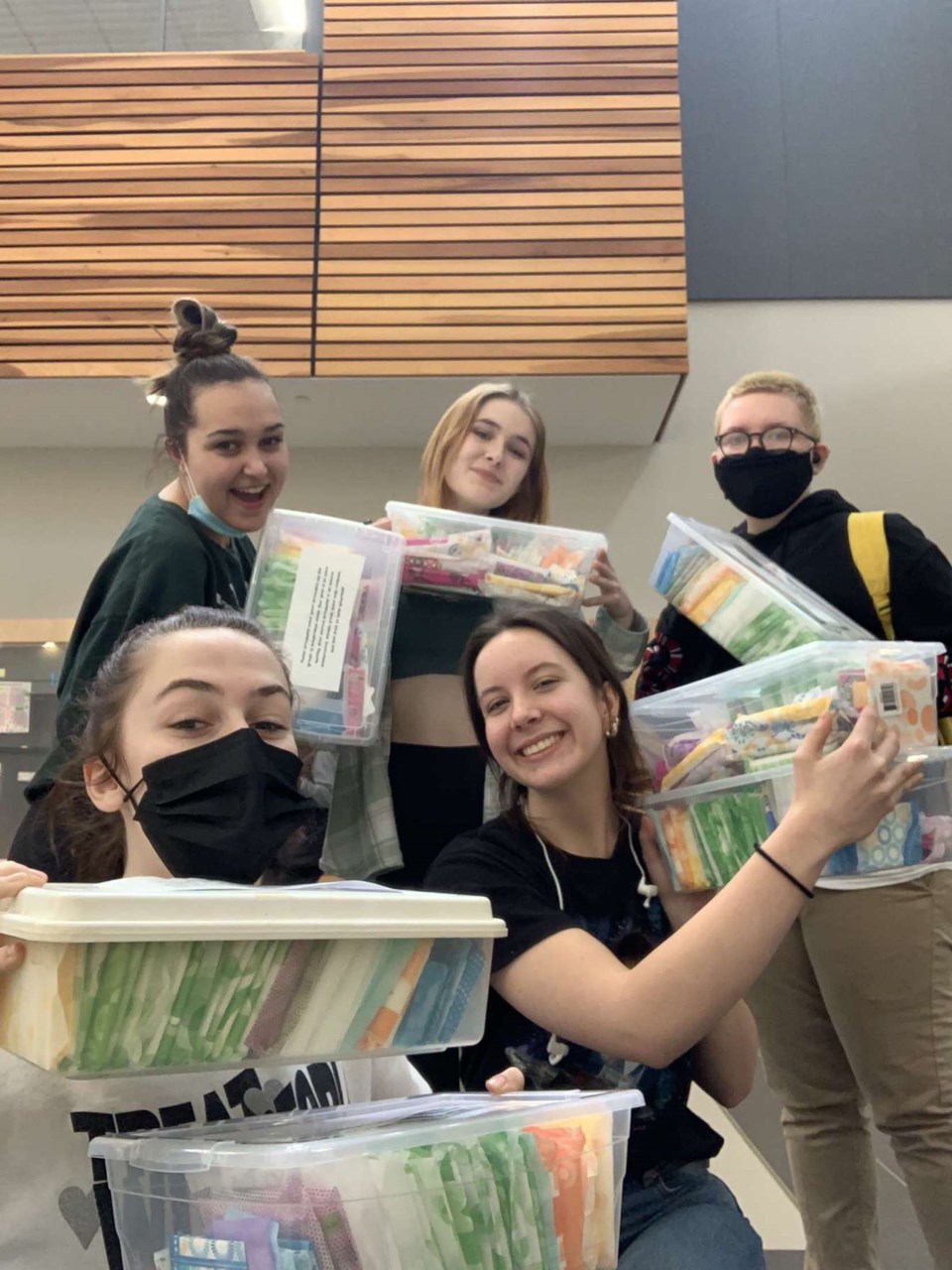For Aon-Miles Quesnelle, living as a transgender teen in Midland presents no shortage of challenges and teachable moments.
When he first came out, Quesnelle was 12 years old, and his friends were very supportive.
His peers, on the other hand, were not as accepting.
A classmate said they did not agree with his “lifestyle,” and Quesnelle says he regrets that he was not confident enough to correct this person’s misconception at that time.
Being lesbian, gay, bisexual, transgender, non-binary, genderqueer, queer, two-spirited, intersex, asexual, or pansexual is not a lifestyle, it is who you are as a person. It is as much a part of your identity as your eye colour, your race or your ethnicity. It is a part of you.
Many people are unaware that there is a difference between sexuality and gender.
Transgender is a term that encompasses a wide range of gender identities and expressions. Trans folx do not identify either fully or partially with the gender associated with their assigned sex at birth.
Trans people also suffer more mental health challenges like depression, anxiety, substance use, and more due to stigma, misgendering, isolation, bullying, and a lack of support and acceptance that affirms their gender.
To learn more about how to better understand and support your LGBTQ2SIA friends, peers, family, and community visit Parents and Friends of Lesbian and Gays Canada.
“I’m built for the life of a man,” says Quesnelle attempting to illustrate how he felt when he realized he was trans.
“It was always there, it was a matter of realizing it.”
Once Quesnelle made the realization, he connected with his father who is also a trans man, and asked him about his experiences.
“He helped me realize that I was not as broken as I thought I was,” says Quesnelle. “He gave me the courage to come out at school.”
Living as a trans youth since the age of 12, the 17-year-old is calm when discussing how he is received by people.
Quesnelle is often misgendered (referring to someone by his or her gender at birth).
“I have a pin that says ‘he/him,’ and people will look at my pin, then look at my face and call me ma’am,” explains Quesnelle.
For some trans people, misgendering can be painful to the point of causing psychological trauma.
Over 80 percent of transgender individuals have considered killing themselves and 40 percent have attempted suicide, with suicidality highest among transgender youth.
This is not the case for Quesnelle, who handles misgendering with grace and poise.
“It happens so often, because I’m a feminist man,” says Quesnelle. “I wear skirts and dresses. As long as you try your best, then I’m okay with that.”
The COVID-19 pandemic has taken a toll on trans youth, and members of the LGBTQ+ community. The Trevor Project in the US reports that 70 percent of LGBTQ youth said their mental health was "poor" most of the time or always during COVID-19.
“COVID has been particularly rough for me,” says Quesnelle who has spent half his trans experience under the strain of the COVID-19 pandemic.
“The majority of other trans people I've met have been at school, and we only had contact during school hours.”
With lockdowns, and online learning, Quesnelle says, “my support system kind of fell apart.”
Since returning to in-person learning, things are looking up for the active teen.
“I have found a new supportive friend group,” says Quesnelle.
Part of that friend group includes Elinor Henderson.
Quesnelle says he owes his friend some credit, because “without her I would not have started the sexual health seminars” that educates younger students.
This year, they’ve worked on the End Period Poverty campaign at Georgian Bay District Secondary School — with the goal of putting pads and tampons in every bathroom.
Quesnelle says he realized that there’s not just stigma for trans people about periods, but also about body parts, health and sexual freedoms.
“A big part of what I do in the seminars is educate people that sexual health is not just about cis-gender people (those whose identity and gender aligns with their birth sex), but it’s also about intersex people,” says Quesnelle.
While the education program is currently available for younger students, Quesnelle says he would also offer the programming to a grade 12 class if requested.
“Education is needed all across the board,” says Quesnelle.
One thing that Quesnelle ensures is a large part of the program is knowing when to say no, and what to do if you or someone you know has been sexually assaulted.
According to Egale Canada, 70 percent of trans youth report experiencing sexual harassment or violence.
Unfortunately, Quesnelle is part of that group, and has been threatened with sexual assault, and even death threats.
Through it all, he remains positive and hopeful.
“People need to learn how to be more open,” says Quesnelle. “The closet is a lot deeper than people think it is.”
While Midland does not have a Pride celebration or parade, Quesnelle has found a small and mighty LGBTQ+ community. Together, they travel to Barrie and Toronto for Pride parades and demonstrations.
“In Midland during Pride, I do see a lot of anger coming from people,” says Quesnelle, who does his best to try and educate people about why there is a Pride Month (June) — because people died simply for being themselves.
When asked what he would have wanted to know as a young person, Quesnelle does not hesitate to say: “You may feel like you’re broken and that there’s no hope.
“But, in the end there are people out there who are just like you and they will love and accept you for who you are and who you love.”



.png;w=120;h=112;mode=crop)